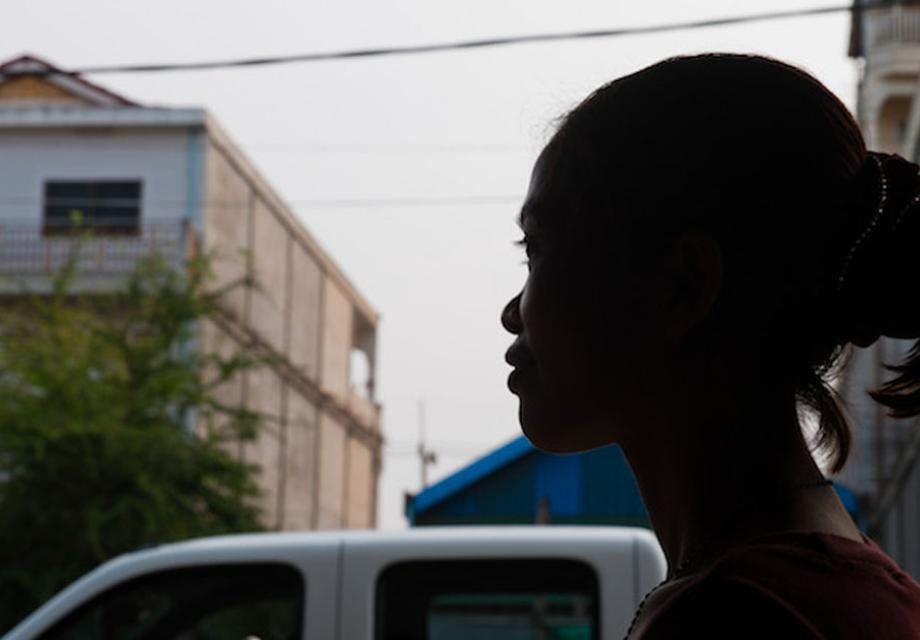Violence against women is both cause and consequence of HIV transmission
Avert staff writers
10 December 2015
Testing HIV positive was the beginning of Margaret Mbabazi’s anguish. It never crossed her mind that her husband and the father of her four children could chase her away from their marital home. But when he tested HIV negative that is exactly what happened.
By Adella Mbabazi, a citizen journalist from the Key Correspondents network
Testing HIV positive was the beginning of Margaret Mbabazi’s anguish. It never crossed her mind that her husband and the father of her four children could chase her away from their marital home. But when he tested HIV negative – which meant the couple were in a discordant relationship – that is exactly what happened.
“Accepting my new situation was hard but I never had a choice. I had to endure and face the rejection,” Margaret says.
As Mbabazi was trying to cope with the problem of being homeless, stigma did not spare her.
“My landlord told me to leave his house, saying he didn’t build it for people who are HIV positive,” says Margaret.
Agnes Asiimwe, 37, a mother of four, lives in Masya, Kanungu district in south-western Uganda. When Agnes' husband tested HIV positive and she tested negative, little did Agnes know, it was the beginning of her problems in the family.
“When my husband tested positive, he wanted us to have sex without using a condom. Accepting his situation was hard and at times he would force himself on me,” Agnes says.
HIV worsens violence against women
Margaret and Agnes are just two women out of so many women in Uganda who face rejection and/or violence at the hands of their partners because they are in a discordant relationship.
There is increasing recognition that violence is both a cause and consequence of HIV transmission. Research indicates that vulnerability to HIV among women who have experienced sexual violence may be up to three times higher than among those who have not.
During the 58th Commission on the Status of Women, the UN Secretary General Ban Ki-moon said: “We must take action to end violence against women and ensure that they have the sexual and reproductive health and rights that they deserve. Violence has a drastic impact on the health of women and is inextricably linked to a higher prevalence of HIV.”
According to Joyce Tibayijuka, from the National Community of Women Living with HIV/AIDS in Uganda, mostly women face sexual violence especially when their partner is HIV positive and they are not. They often become victims of violence, either from their partners or family members.
“Women who have been subject to violence from a sexual partner are more likely than other women to go on to acquire HIV. The more severe, frequent or sustained the violence, the greater risks of HIV infection.
Although we have brought men on board to act as our male champions, the government needs to come up with strategies on male involvement if sex violence is to be addressed,” says Tibayijuka.
Dr Kihumuro Apuuli, director-general of the Uganda AIDS Commission, says there is low condom use among HIV-discordant couples and, at times, men do not want to use condoms resulting in sexual violence.
“Condoms, if used regularly and properly, are the best medical interventions in HIV prevention for discordant couples,” says Kihumuro.
Educating male partners
Studies have shown that intimate partner violence can increase the risk of HIV infection by around 50 per cent. There is also evidence that violence undermines access to treatment, care and support services for women living with HIV.
In Uganda, 60% of new HIV infections occur in relationships between HIV discordant couples.
Dr Chris Baryomunsi, Uganda’s junior minister for health, says that educating male partners about HIV and how it is transmitted is essential to successful, long-term approaches to eliminating HIV/AIDS and also to ending sexual violence among the couples.
He elaborates that government plans to equip health centre workers with skills to address issues related to sexual violence in couples. Such skills, he says, will include how to handle cases of women battered by their husbands over their HIV status, and counselling couples on issues related to HIV in their families.
National Community of Women Living with HIV/AIDS
The government could also do more to invest in projects such as those run by the National Community of Women Living with HIV/AIDS, whose association promotes positive living for women with HIV and AIDS through the provision of psycho-social support. It also advocates for access to essential services including sexual and reproductive health services and HIV prevention and treatment.
Both Margret and Agnes are now volunteering as peer mothers in the association and are involved in counselling fellow women living in discordant relationships.
Margaret says: “The other women and I come together usually on Fridays for meetings and HIV education, dramas and songs. We even go to the clinic to educate the women at the mother and child health clinic and get on the radio where we also educate people.
"It makes me feel free to tell people my status, defend myself, feel no stigma and I am able to bring some women in discordant relationships to the association.”
Adella Mbabazi lives in Uganda and is a member of Key Correspondents, a citizen journalism network reporting for action on HIV. The network is supported by the International HIV/AIDS Alliance.
Get our news and blogs by email
Keep up-to-date with all our latest news stories and blogs by signing up to the Be in the KNOW news digest.
